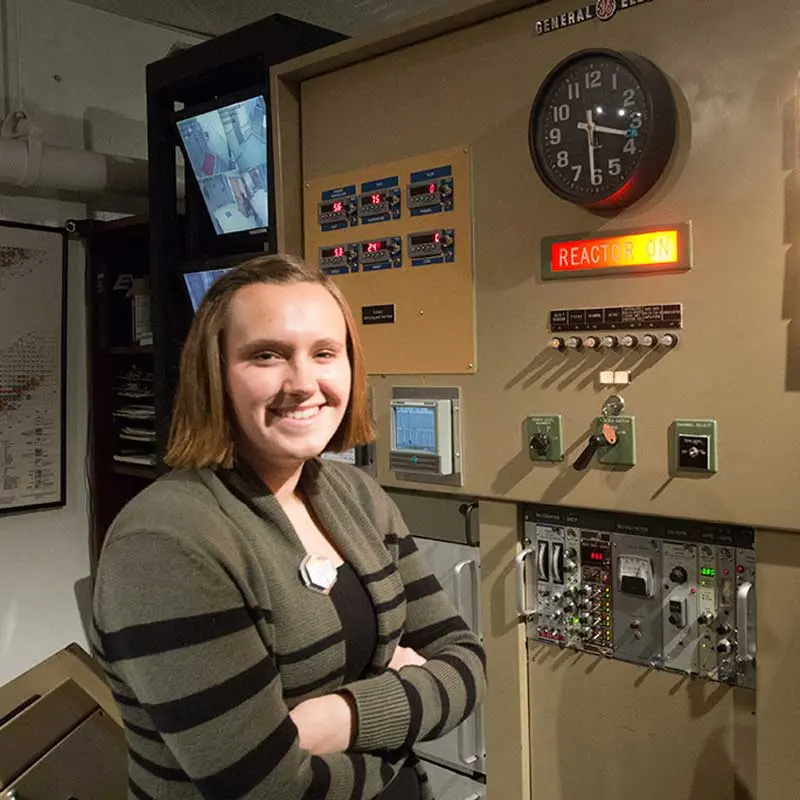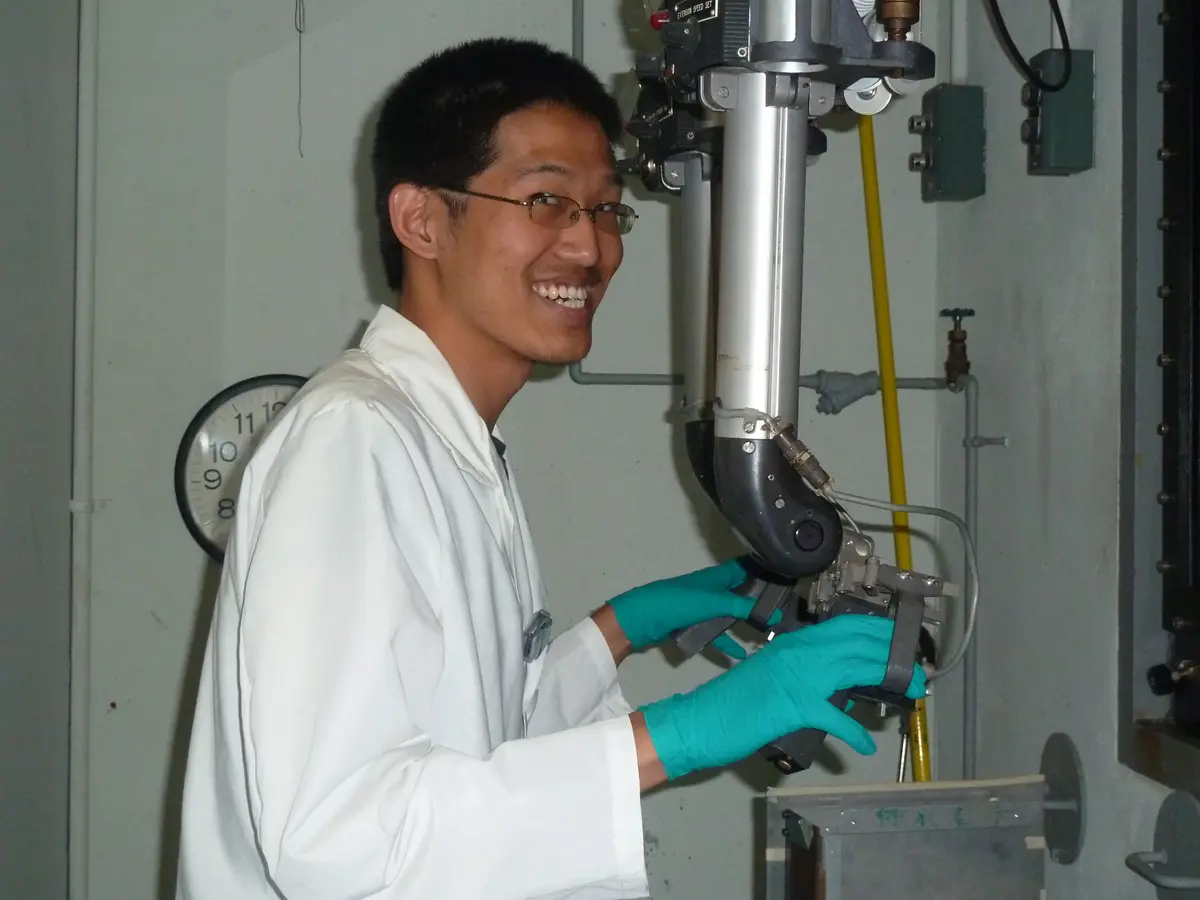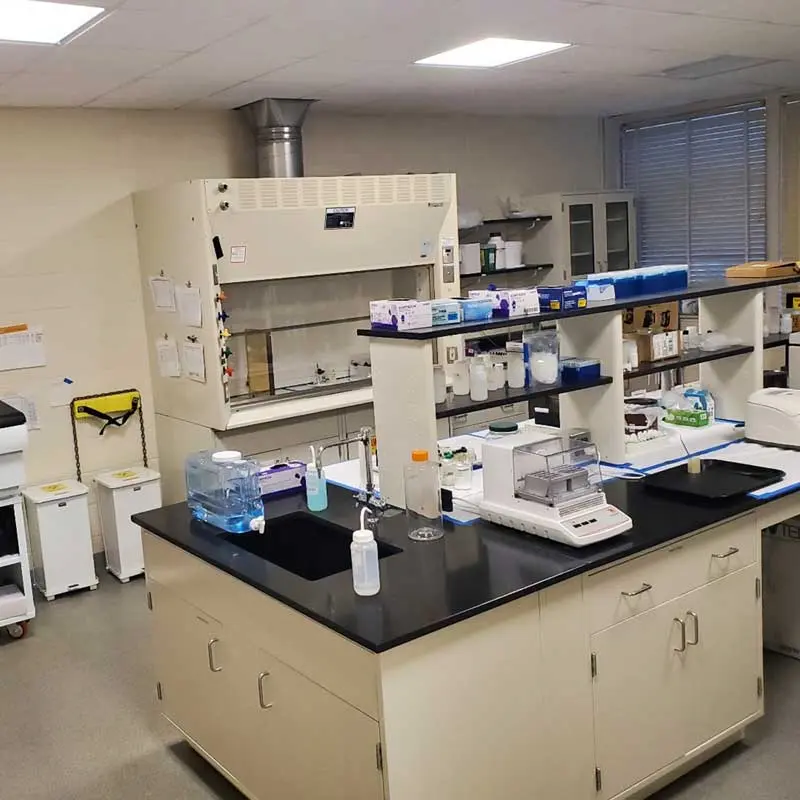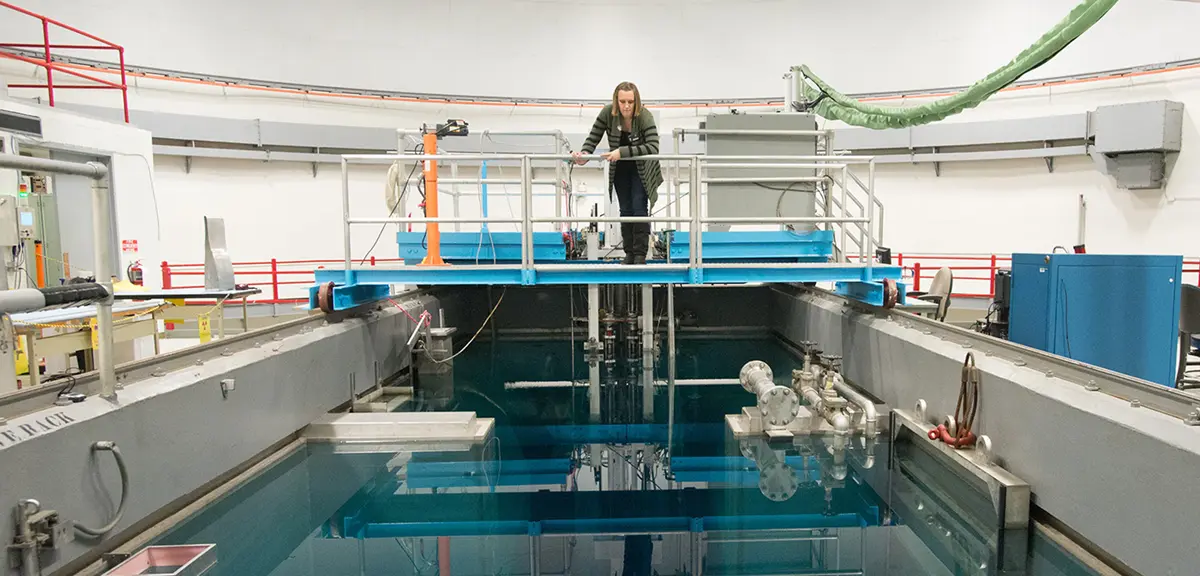For students entering Fall 2024 and after.
Total program credits required = 31 credits (minimum)
Total number of courses required for the degree = 11
- Total number of core courses required = 4
- Requirement 1 = Core Courses
- Requirement 2 = Laboratory and Instrumentation Course
- Requirement 3 = Research Project Course*
- Requirement 4 = Track-Specific Course Requirements**
Major Required (Core) Courses
| Core Courses |
|---|
| Course number | Course Name | Credits |
|---|
| Requirement 1 Core Course |
|
|---|
| BMBT.5200 | Bioethics | 1 |
BMEN.5810
or
PUBH.5770 | Data Analytics and Biostatistics for BME
or
Biostatistics for Health Data | 3 |
BMEN.5210
or
HSCI.5510 | Quantitative Physiology
or
Clinical Pathophysiology | 3 |
| Requirement 2Laboratory and Instrumentation Course (choose 1) | |
| BIOL.5190/5210L | Biochemistry Techniques | 3 |
| BIOL.5690 | Molecular Techniques | 3 |
| BMEN.5200 | Bioinstrumentations | 3 |
| CHEN.5860 | Biotech Processing Projects Lab | 3 |
| EECE.5600 | Biomedical Instrumentation | 3 |
| EXER.5030 | Kinesiology Laboratory Methods | 3 |
| MLSC.6100/6101L | Clinical Toxicology Lecture and Lab | 3 |
| NUTR.5650 | Lab Methods in Nutrition Assessment | 3 |
| PHRM.6400/6420L | Pharmaceutical Analysis Lecture and Lab | 3 |
| RADI.5060 | Nuclear Instrumentation with Lab | 3 |
| XXXX.xxxx | Other lab course as recommended by the departmental track advisor and approved by BMEBT College Coordinator. Graduate Academic Petition is needed. | 3-5 |
| Sub-total Core Credits Required | 10 |
| Elective Course Choices (Total courses required=7, 21 required credits minimum) |
|---|
| Course Number | Course Name | Credits |
|---|
| Requirement 3 Research Project Course* | 3 |
|---|
| Requirement 4 Track-Specific Course Requirements** |
|
| XXXX.XXXX | Track Course 1 | 3 |
| XXXX.XXXX | Track Course 2 | 3 |
| XXXX.XXXX | Track Course 3 | 3 |
| XXXX.XXXX | Track Course 4 | 3 |
| XXXX.XXXX | Track Course 5 | 3 |
| XXXX.XXXX | Track Course 6 | 3 |
| Sub-total number of Elective Credits Required | 21 |
Curriculum Summary
- Total number of courses required for the degree = 11
- Total credit hours required for the degree = 31
Prerequisite, Concentration or Other Requirements:
*Research Project (3 cr minimum), specific to the student’s track as advised by the college/departmental track advisor, is also required. Students will register for an Independent Study/Advanced Project in the associated college/department. Depending on the departmental track, this may be combined – with additional credits – for the Master’s with thesis option, if applicable.
**Track-specific course requirements.
All students shall complete track-specific specialization courses, such that they have completed or transferred a total of 31 credits prior to graduation. Students must meet with the appropriate college/departmental track advisor to select the courses most relevant to the students’ career goals. Specialization courses will help the student attain depth in focused areas.
Biomedical Sciences Tracks
I.Cell And Molecular Biotechnology Track – Department of Biological Sciences
Applicants wishing to follow this track must have a minimum of two semesters or three quarters (equivalent of one academic year) of calculus. The Track consists of four to six courses (17-19 credits). Students must complete two core courses supplemented with elective courses from the list below to achieve a minimum of 31 credits total.
Cell and Molecular (One of the following; 3-4 credits)
Bioinformatics (One of the following; 3-4 credits)
Plus any of the following electives to reach the 31-credit minimum for MS BMEBT
- BIOL.5670Molecular Techniques may not count for both the Lab/Instrumentation requirement and the Cell and Molecular Biotechnology Track Core. Students using BIOL.5670 for the Lab/Instrumentation requirement must enroll in Biochemistry BIOL.5190
- BIOL.5190 Biochemistry is a Pre-/Co-requisite for BIOL.5210L Biochemistry Techniques (A potential Laboratory and Instrumentation course)
- Most labs are Pre-requisites/Co-requisites with the corresponding lecture course
II.Medical Materials Chemistry with Thesis Track – Department of Chemistry
Applicants wishing to follow this track must have a minimum of two semesters or three quarters (equivalent of one academic year) of calculus. The track consists of one required course (3 credits), one elective course from a list of approved courses (3 credits) and a minimum of 12 credits of Thesis research with defense
REQUIRED the following course: (3 credits)
Choose one course of the following (3 credits):
Spectroscopy (3 credits)
- CHEM.5140 Advanced Analytical Chemistry (3 credits)
- CHEM.5800 Advanced Analytical Biochemistry (3 credits)
- CHEM.5950 Supramolecular Chemistry (3 credits)
- CHEM.5660 Nanomaterials and Nanostructures (3 credits)
- POLY.5030 Advanced Polymer Science I (3 credits)
- POLY.5040 Advanced Polymer Science II (3 credits)
- POLY.5050 Polymer Preparation and Characterization (3 credits)
- POLY.5110 Biopolymers (3 credits)
- CHEM.5221 Solid-State Materials Chemistry (3 credits)
- CHEM.6310 Medicinal Chemistry (3 credits)
- CHEM.5600 Advanced Physical Biochemistry (3 credits)
- CHEM.5700 Protein Biochemistry (3 credits)
- CHEM.5620 Biopharmaceutical Development (3 credits)
- CHEM.5690 ML and AI in Living Organisms
III. Medical Materials Chemistry with Non-thesis Track – Department of Chemistry
Applicants wishing to follow this track must have a minimum of two semesters or three quarters (equivalent of one academic year) of calculus. The track consists of one required course (3 credits), and 5 courses (15 credits) from a list of approved courses.
Common mandatory course: (3 credits)
Choose five courses from the following (15 credits)
Spectroscopy (3 credits)
- CHEM.5140 Advanced Analytical Chemistry (3 credits)
- CHEM.5800 Advanced Analytical Biochemistry (3 credits)
- CHEM.5950 Supramolecular Chemistry (3 credits)
- CHEM.5660 Nanomaterials and Nanostructures (3 credits)
- POLY.5030 Advanced Polymer Science I (3 credits)
- POLY.5040 Advanced Polymer Science II (3 credits)
- POLY.5050 Polymer Preparation and Characterization (3 credits)
- POLY.5110 Biopolymers (3 credits)
- CHEM.5221 Solid-State Materials Chemistry (3 credits)
- CHEM.6310 Medicinal Chemistry (3 credits)
- CHEM.5600 Advanced Physical Biochemistry (3 credits)
- CHEM.5700 Protein Biochemistry (3 credits)
- CHEM.5620 Biopharmaceutical Development (3 credits)
- CHEM.5690 ML and AI in Living Organisms
IV.Biophysics Track – – Department of Physics and Applied Physics and Department of Biological Sciences Applicants wishing to follow this track must have a minimum of two semesters or three quarters (equivalent of one academic year) of calculus. The Track consists of a minimum of 15 course credits and 6 credits of MS Thesis research, which may be combined with Requirement 3 above. Students must complete three core courses supplemented with elective courses from the list below.
Common mandatory course*
Cell and Molecular Biology (Choose one of the following; 3-4 credits)*
Bioinformatics (Choose one of the following; 3-4 credits)*
Select 6 credits from the following:
- BIOL.5670 Molecular Techniques may not count for both the BMEBT Lab/Instrumentation requirement and the Biophysics track requirement. Students using BIOL.5670 for the Lab/Instrumentation requirement must enroll in Biochemistry BIOL.5190
- BIOL.5190 Biochemistry is a Pre-/Co-requisite for BIOL.5210L Biochemistry Techniques (A potential Laboratory and Instrumentation course.)
*Students who have taken these or equivalent courses can select an elective instead.
V.Radiation Protection Track – Department of Physics and Applied Physics
Applicants wishing to follow this track must have a minimum of two semesters or three quarters (equivalent of one academic year) of calculus. Select a minimum of 18 credits from the following courses, with the approval of the advisor:
- RADI.5010L Radiation Safety and Control I (3 + 1 credits)
- RADI.5020L Radiation Safety and Control II (3 + 1 credits)
- RADI.5060 Nuclear Instrumentation with Lab (3 credits)
- RADI.5240 Environmental Health Physics (3 credits)
- RADI.5330 External Radiation Dosimetry and Shielding (3 credits)
- RADI.5340 Internal Radiation Dosimetry and Bioassay (3 credits)
- RADI.5410 Radiochemistry (3 credits)
- RADI.5620 Radiation Biology (3 credits)
- RADI.5820 Numerical Methods in Radiological Science * (3 credits)
- RADI.6050 Radiation Interactions and Transport * (3 credits)
- RADI.6060 Monte Carlo Simulation of Radiation Transport * (3 credits)
* May be petitioned to replace BMEN.5810 in Requirement 1
VI.Kinesiology non-thesis and thesis track- Department of Physical Therapy and Kinesiology
Core Course Requirements (13 credits)
The core courses provide a common foundation for all students, whether from life science, physical science, or engineering backgrounds. Core requirements are divided into three categories. The college/departmental track advisor must approve all course selections.
Requirement 1. Common BMEBT Courses (7 credits)
Requirement 2. Laboratory and instrumentation course (3 credits)
- EXER.5030 Kinesiology Laboratory Methods (3 credits)
Requirement 3. Research project course (3 credit)
Track-specific course requirements (minimum of 18 credits)
All students shall complete track-specific specialization courses, such that they have completed or transferred a total of 31 credits prior to graduation. Students must meet with the appropriate college/departmental track advisor to select the courses most relevant to the students’ career goals. Specialization courses will help the student attain depth in focused areas. Students pursuing the Kinesiology Track will need to complete coursework from the following list of courses.
Required PTK courses (9 credits)
- EXER.6010 Topics in Human Movement Sciences (3 credits)
- EXER.6020 Advanced Exercise Physiology (3 credits)
- DPTH.6160 Research Method (3 credits)
Elective PTK courses (9 credits)
*Other non-PTK courses approved by advisor/program director.
Thesis students only (6 credits)
Last Updated 5/24/24




